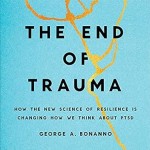We spend A LOT of time working to prevent student working memory overload. In this post, our blogger asks about the dangers of TEACHER working memory overload.
If I could pick one topic from cognitive science for ALL TEACHERS to study, that topic would be working memory.
This small mental capacity allows us to select, hold, reorganize, and combine bits of information (and other things).
So, if you try to put the five days of the work week in alphabetical order, you’re using your working memory.
Alas, because working memory is so small, it gets easily overwhelmed.
Quick: try to put the twelve months of the year in alphabetical order.
Unless you’re writing words down, you almost certainly can’t do it.
Why does this cognitive insight matter?
Because our students have to select, hold, reorganize, and combine bits of information ALL THE TIME. We call that “learning.”
And the situation gets even scarier: when working memory is all-too-easily overloaded, learning stops.
Do you know a scarier sentence than “learning stops”?
For these reasons, I spend much of my professional life talking with teachers about working memory.
Given that I’ve even written a book on the topic, you’d think I’d run out of things to say. But…
More Things To Say
One working memory topic that gets relatively little attention: the teacher’s working memory.
That is: as teachers, we also must – at every second – select, hold, reorganize, and combine bits of information:
The lesson plan
The correctness of this student’s answer
The brewing argument between those two over there
The possibility of an un-announced fire-drill
The page number of the example I want to include
The insightful point I want to bring up at the department meeting next period
Oh, wait! I need to get orange juice on the way home…
This list could easily go on for pages.
In other words: students face the potential for working memory overload all the time. And: TEACHERS DO TOO.
When students’ working memory is overloaded, “learning stops.” When teachers’ working memory is overloaded, our effective functioning also stops. Cognitively, we bonk.
What to Do?
To manange student working memory, I encourage teachers to try a 3-part approach:
Try to ANTICIPATE working-memory overload. (If a lesson plan has lots of instructions, I can predict students’ working memory will crash.)
Try to IDENTIFY overload. (That face the student is making — that’s a sign!)
Try to SOLVE overload. (Using, say, dual coding, or powerful knowledge, or stress reduction…)
If we can do these three things, we’re likely to help students stay within a working-memory comfort zone.
I think that these same three categories might be useful in managing our own working memory.
So: can I ANTICIPATE when my working memory will be threatened in class?
Honestly, that’s easy!
When I have especially important or stressful obligations outside outside of school (say, a trip to the hospital after work).
When I’m teaching a new/complex topic.
When I didn’t get much sleep, and/or am sick.
When I’m managing multiple school roles: teacher AND dean AND coach AND adviser AND…
When I’m trying out a new kind of technology. (Remember your first weeks of zoom teaching?)
Of course, your list will differ from mine — because you and I are two different people. But I suspect you can, fairly easily, come up with your own version of this checklist: “if THIS is happening today, my working memory might really struggle.”
Good news: if you can anticipate when your own working memory might buckle, you know when to start shoring it up…
Check Your Mirrors
Once we have anticipated the times when our own working memory might be overloaded, we should then learn to IDENTIFY the experience of overload.
In my own work, I’ve learned to rely on three key indicators.
First: word salad.
Because I talk about complex and technical topics, I often talk in complex sentences with lots of technical vocabulary.
When my working memory gets overloaded, I find that my sentences fall apart. The subordinate clauses fight with the appositives, and I can no longer remember the subject of my verb.
Instead of trying to “identify” working memory overload, I might tell teachers to “redentify” it. (I don’t think “redentify” is a word.)
When I experience this word chaos, I know my working memory is in trouble.
Second: third of three
When I discuss working memory with teachers, they — of course! — ask questions.
I often say: “well, there are three answers to your question.”
But … you know where this is going … by the time I’m done with my second answer, I can’t even remember the question (much less the third part of the answer).
Yup: that’s working memory overload.
Third: emotional barometer
My own cultural background isn’t big on emotions. (Growing up, I was allowed to have mildly positive feelings, but everything else was discouraged. Mildly.)
For that reason, I’m not great at monitoring my own emotional state.
But I have learned: when I start feeling penned in and frustrated — when my chest is a little tight and breathing, a bit of a chore — that feeling almost always results from working memory overload.
My body is saying: “I just can’t handle this mental load right now!”
When that happens, I know: it’s time to break out my working-memory solutions!
Here again, your list might not look like my list: you’ll discover your own ways to identify working memory stress. But, that list might be a useful place to start…
The Last Step
If I can anticipate that my working memory will be overloaded (because, say, I’m explaining the differences between direct objects and subject complements)…
…and I can recognize that my working memory IS overloaded (because, say, I can’t coherently answer my student’s question)…
…then it’s time to SOLVE my working memory problems?
How do I do that?
Well: I don’t want to overwhelm the reader’s working memory — so I’ll write about that in next week’s blog post.




